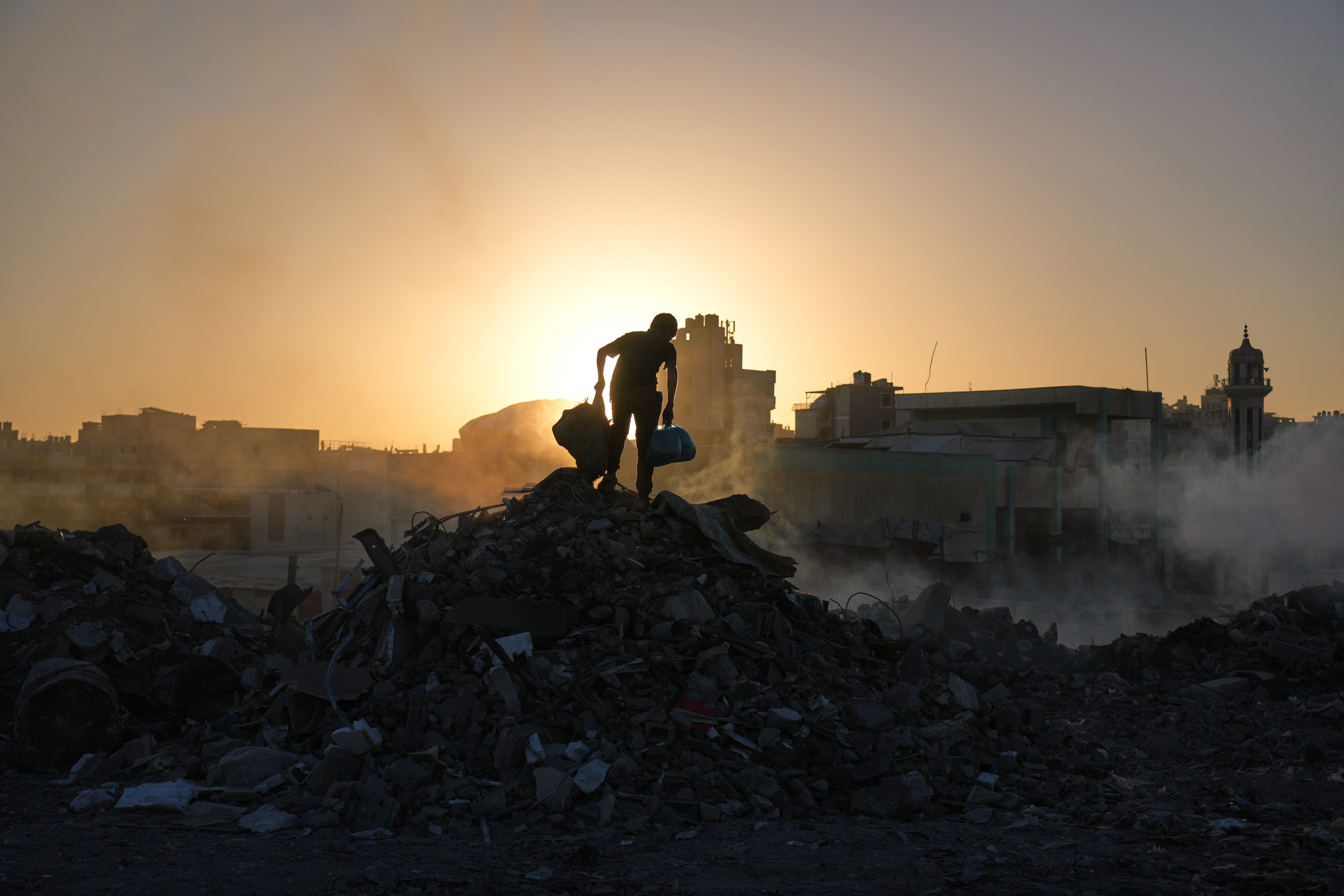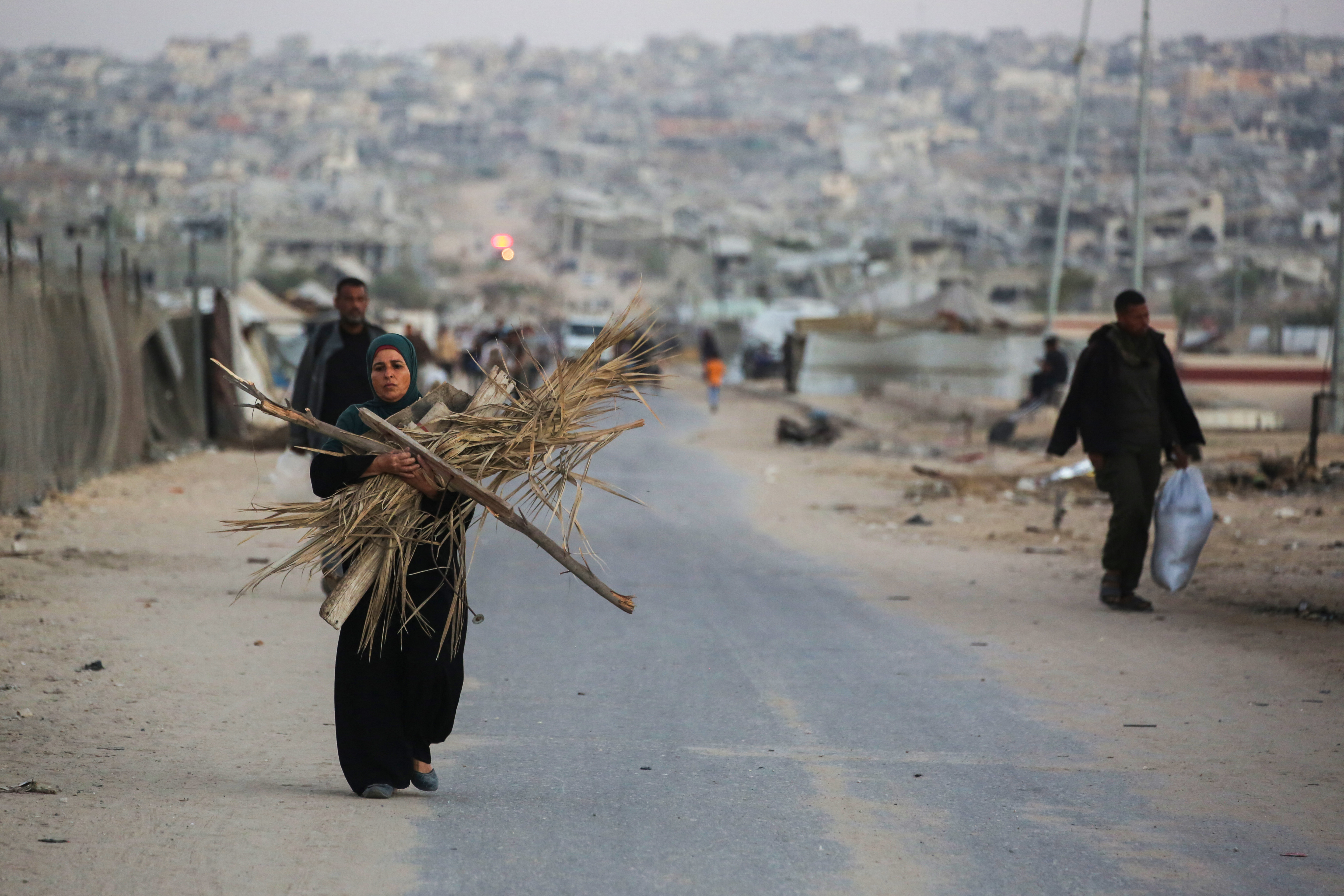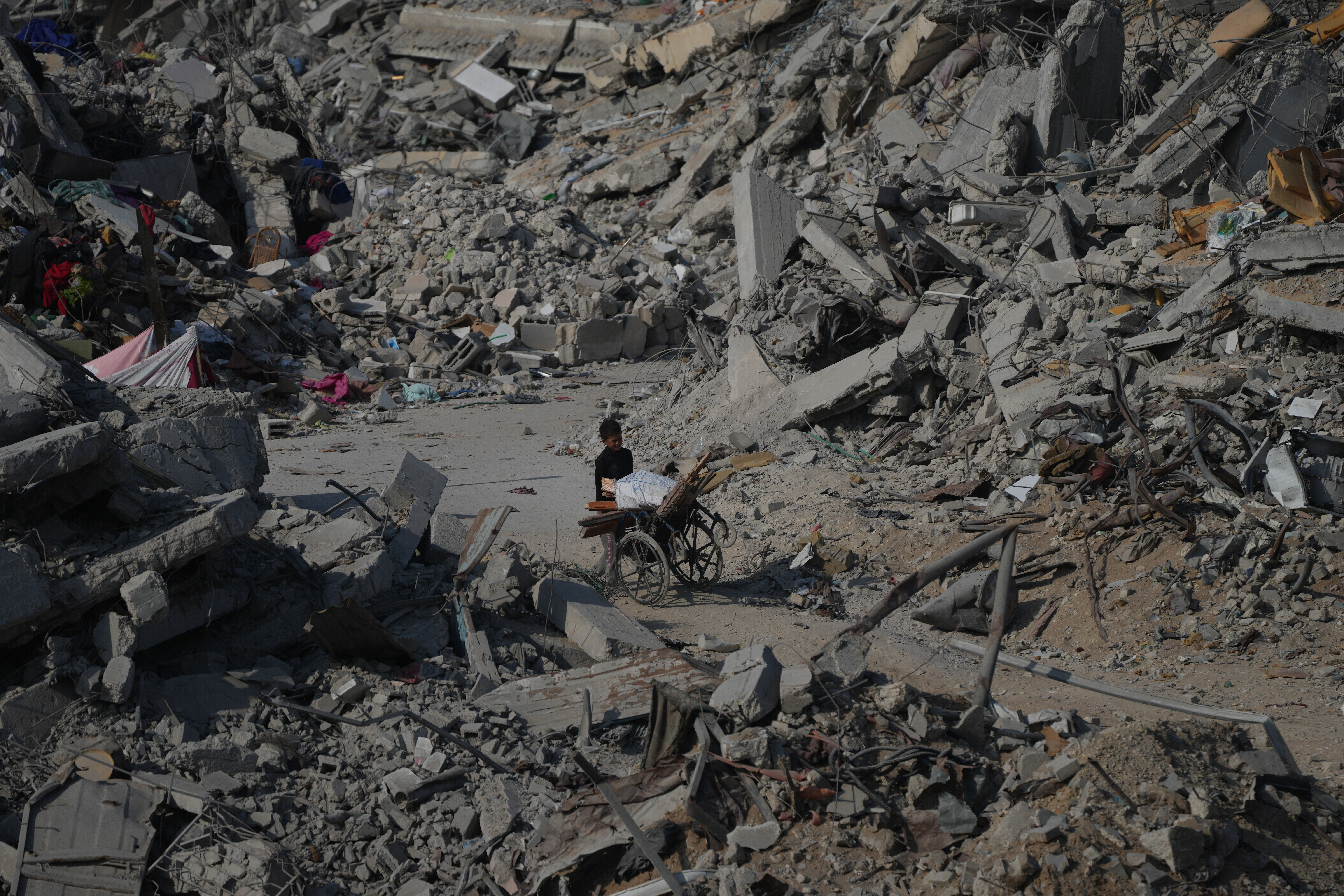
GAZA/JERUSALEM/CAIRO/RAMALLAH - At least four Palestinians were injured on Saturday in an Israeli drone strike on central Gaza, according to Palestinian and Israeli sources.
Palestinian medical sources told Xinhua that the strike targeted a vehicle near Al-Ahli Club in the al-Nuseirat refugee camp, whereas Al-Awda Hospital said in a brief statement that it has received four injuries following the strike on a civilian vehicle.
The Israeli military confirmed the strike in a press statement, saying it targeted a member of the Palestinian Islamic Jihad group who allegedly planned an "imminent attack" against Israeli forces.
According to the Times of Israel, al-Nuseirat is located west of the so-called "Yellow Line." This unofficial boundary separates Israeli-controlled areas from Palestinian movement zones in Gaza, placing al-Nuseirat outside current Israeli control per the ceasefire deal.
Earlier in the day, Gaza-based health authorities said 93 Palestinians had been killed and 324 others injured since the new ceasefire came into effect on Oct 10.
ALSO READ: Palestinian factions agree to independent technocratic body for Gaza governance
Also on Saturday, The Palestinian National Liberation Movement (Fatah) rejected any form of external guardianship over the Palestinian people and said that opposition to a unified Palestinian authority would only deepen internal divisions.
In a statement, Fatah said international involvement should be confined to monitoring the ceasefire and overseeing reconstruction within a set timeframe.

It stressed that security in Gaza must remain under the control of official Palestinian security forces, and that any international troops should be stationed only along the borders under a clear UN Security Council mandate, without infringing on Palestinian sovereignty.
The movement said the question of Palestinian arms should be resolved within a national framework that ensures a single authority, a unified security force, and the rule of law -- measures it said were essential to internal stability and to denying Israel grounds for further military action or political division.
On Friday, Palestinian factions, including Hamas and Fatah, agreed to form an interim technocratic committee to run Gaza. The non-partisan body, composed of figures from the enclave, will manage daily affairs and essential services, the factions said after Egyptian-mediated talks in Cairo.
A ceasefire between Hamas and Israel, brokered by Egypt, Qatar, Türkiye, and the United States, took effect on Oct 10. Its first phase includes a prisoner exchange, the entry of humanitarian aid, and a partial withdrawal of Israeli troops.
ALSO READ: Truce in Gaza holds despite transgressions
Israel and the United States have opposed any future role for Hamas in governing Gaza and have demanded the group's disarmament. Despite the truce, both Israel and Hamas have accused each other of violations.
Meanwhile, Egyptian Foreign Minister Badr Abdelatty and Turkish counterpart Hakan Fidan on Saturday stressed the need to uphold the Gaza ceasefire to maintain regional stability.
In a phone call, they discussed preparations for a Cairo-hosted international conference in November on Gaza's recovery and reconstruction, with Abdelatty urging Türkiye's active participation and support. He also noted ongoing Egypt-Türkiye coordination in monitoring the truce alongside regional and international partners.

Both ministers agreed that closer diplomatic cooperation would strengthen security and advance their shared interests.
Egypt has also dispatched a specialized team and equipment to Gaza to assist in recovering the bodies of Israeli hostages held in the enclave, Egypt's Al-Qahera News reported.
The state-affiliated media, citing an anonymous source, said the deployment aims to accelerate the search operations under the ceasefire agreement, particularly for recovering remains from beneath the widespread rubble in Gaza. Previous reports indicated extreme difficulties in retrieving bodies due to massive destruction.
West Bank
In Ramallah, the National Bureau for Defending Land and Resisting Settlements, part of the Palestine Liberation Organization (PLO), on Saturday warned of Israeli plans to seize large areas of land in the West Bank and East Jerusalem.
In its weekly report, the bureau said Israeli authorities discussed building 248 settlement units in the West Bank last week and intend to proceed with six plans across four settlements. It also reported a seizure order for over 70 dunams (7 hectares) of land in Nablus, citing military and security purposes to create a buffer zone.
The bureau added that during the past week, settlers fenced off more than 4,000 dunams of privately owned, fertile agricultural land belonging to around 40 Palestinian families in the northern Jordan Valley.
The report also highlighted a surge in settler attacks on Palestinians and their property in the area, particularly during the olive harvest season, now in its third consecutive week.
READ MORE: Israel freezes legislative process for West Bank annexation
The United Nations Office for the Coordination of Humanitarian Affairs said settlers carried out 71 attacks on 27 West Bank villages between Oct 7-13, about half linked to the olive harvest. Palestinian sources reported that dozens of olive pickers were injured Saturday, suffering suffocation and burns in attacks involving both settlers and the Israeli army.
Since Oct 7, 2023, settlers have carried out roughly 7,154 attacks on Palestinians and their property, resulting in 34 deaths in the West Bank, according to the PLO's Wall and Settlement Resistance Commission.
Israel captured the West Bank and East Jerusalem in the 1967 Middle East war. The settlements it has built there, and its military occupation, are considered illegal under international law.


